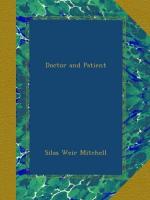I do not want to make too much of a small matter. No doubt many people do this kind of thing, but in most volumes of travel it is easy to see that the descriptions lack method, and show such want of training in observation as would not be noticeable had their authors gone through the modest studies I am now inviting my pupil to make.
Her temptation will be to note most the large, the grotesque, or the startling aspects of nature. In time these will be desirable as studies, but at first she must try smaller and limited sketches. They are as difficult, but do not change as do the grander scenes and objects. I knew a sick girl, who, bedfast for years, used to amuse herself with what her windows and an opera-glass commanded in the way of sky and foliage. The buds in spring-time, especially the horse-chestnuts, were the subject of quite curious notes, and cloud-forms an endless source of joy and puzzle to describe. One summer a great effort was made, and she was taken to the country, and a day or two later carried down near a brook, where they swung her hammock. I found her quite busy a week later, and happy in having discovered that the wave-curves over a rock were like the curves of some shells. My pupil will soon learn, as she did, that a good opera-glass is indispensable. Let any one who has not tried it look with such a glass at sunset-decked water in motion. I am sure they will be startled by its beauty, and this especially if the surface be seen from a boat, because merely to look down on water is to make no acquaintance with its loveliness. A scroll of paper to limit the view and cut out side-lights also intensifies color. The materials my pupil is to use are words, and words only. Constant dissatisfaction with the little they can tell us is the fate of all who use them. The sketcher, the great word-painter, and even the poet feels this when, like Browning, he seems so to suffer from their weakness as to be troubled into audacious employment of the words that will not obey his will, torment them as he may. Yet, as my pupil goes on, she will find her vocabulary growing, and will become more and more accurate in her use and more ingenious in her combination of words to give her meaning. As she learns to feel strongly—for she will in time—her love will give her increasing power both to see and to state what she sees, because this gentle passion for nature in all her moods is like a true-love affair, and grows by what it feeds upon.
When we come to sketch in words the rare and weird effects, the storm, the sunsets that seem not of earth, the cascade, or the ravage of the “windfall,” it is wise not to be lured into fanciful word-painting, and the temptation is large. Yet the simplest expression of facts is then and for such rare occasions the best, and often by far the most forceful.
I venture, yet again, to give from a note-book of last year a few lines as to a sunset. I was on a steam-yacht awaiting the yachts which were racing for the Newport cup.




